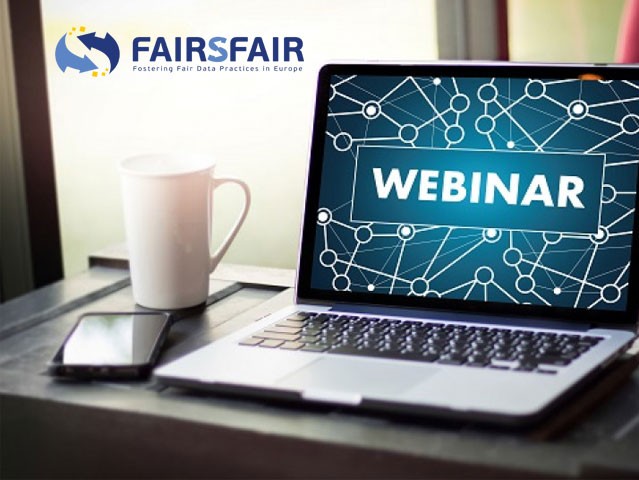FAIRification of Services – Two Examples

The FAIR principles are explicitly targeted at both metadata and data, with data here being regarded as any digital resource, asset or object (e.g. APIs, workflows, ontologies, models, and others). However, digital objects can not be made FAIR without supporting infrastructure services that are FAIR themselves.
REGISTER: https://zoom.us/webinar/register/WN_P3f8bLcnQwaASsafzKT-vA(opens in new window)
One approach is a systematic evaluation of the FAIRness of services. In this regard, FAIRsFAIR is developing a FAIR assessment framework for data services alongside a similar framework for research software. The interim “Assessment report on FAIRness of services” is the topic of the first part of the webinar. The webinar will briefly review FAIR assessment frameworks for data and other digital objects and motivate the need for a similar framework for services.
In the second part, the focus is on repositories, which not only give access (with needed restrictions) to research data and metadata, but are searchable and offer persistent identifiers which offer or enable search functionality. Deliverable 2.3 Set of FAIR data repositories features presents a list of the features of repositories which allows repositories not only to host FAIR digital objects but also to be FAIR themselves.
After the presentations there will be room for Q&A and discussion; any feedback to the underlying reports will be welcome at the webinar or online through the links included with the abstracts on Zenodo.
REGISTER NOW
The context
The FAIR principles (Wilkinson et al., 2016) provide direction and guidance for research data management and stewardship and are relevant to all stakeholders in the current digital ecosystem. They aim at improving findability, accessibility, interoperability and reusability of data and define expected behaviours for metadata, data and supporting infrastructural elements. However, the principles are – by design – formulated as high-level guidelines that require further interpretation and definition by the community.
While the FAIR principles are explicitly targeted at research data and associated metadata, a truly FAIR ecosystem also includes other digital research objects (e.g. software, workflows, ontologies, digital models, and others) – as well as the services and supporting infrastructure that operates on them to enable efficient, equitable and frictionless sharing, analysis and re-use. It is therefore imperative to critically consider how such data services can ‘be’ or, perhaps better, ‘enable’ FAIR.
More info: https://www.fairsfair.eu/events/fairification-services-%E2%80%93-two-examples(opens in new window)
SPEAKERS
- Claudia Behnke - SURFsara
After finishing her PhD in nuclear physics, Claudia realised that she loves fundamental research but absolutely does not want to work as a scientist. After a small detour into science communication and outreach at CERN, Claudia found herself at SURFsara, the Dutch ICT structure, where she leads the data preservation team and is responsible for an archive holding 70 PB of scientific data. Her primary focus is on supporting scientists in research data management, and she is task leader of FAIRsFAIR task 2.3.
- Hylke Koers - SURFsara
Dr. Hylke Koers heads up the SURFsara Data Management Services group, which develops and operates services to help research institutes manage their research data in a robust, safe, easy and cost-effective way. Hylke joined SURF in 2018, prior to which he was a Product Director at Elsevier, working on innovations to the scholarly article such as interactive plots and the Virtual Microscope. He co-founded the ICSU-WDS/RDA Working Group that created the Scholix framework, an emerging industry standard for linking research data and literature. He currently leads FAIRsFAIR task 2.4 on ‘FAIRness’ of data services & software, and contributes to the EOSC architecture WG and EOSC-hub WP12. Hylke holds a PhD in theoretical astrophysics from the University of Amsterdam.
Keywords
FAIR data, data management, open science


